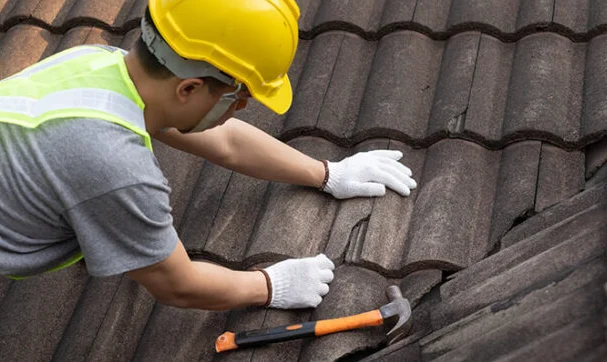When it comes to maintaining or upgrading their roofs, homeowners often decide whether to hire a roof repair or replacement contractor. While both services address a roof’s condition, they involve different approaches, skills, and outcomes. Understanding the key differences between these two types of contractors at the Georgetown office can help you make a more informed decision based on your roof’s specific needs.
Understanding Roof Repair Contractors
Roof repair contractors are focused on fixing specific issues with a roof, such as leaks, damaged shingles, or localized wear and tear. Their job is to extend the life of your existing roof by addressing smaller problems before they evolve into larger, more costly issues. A roof repair might involve patching leaks, replacing a few damaged shingles, fixing flashing, or addressing roof ventilation issues. Contractors in this field usually have a deep knowledge of identifying and diagnosing common roofing problems, allowing them to apply targeted fixes.
Typically, roof repair contractors work with various roofing materials, from asphalt shingles to metal roofing. They can also assess the condition of the roof’s underlayment and support structure, ensuring that any immediate threats to the roof’s integrity are dealt with efficiently. Repair contractors often work on homes with relatively new roofs that still have a lot of life left but may require occasional repairs due to wear and tear, storm damage, or other minor issues. Roof repair is typically more affordable than full replacement, making it ideal for homeowners who want more years of service from their existing roof.
Roof Replacement Contractors: When to Consider a Full Replacement
While roof repair contractors focus on fixing small issues, roof replacement contractors are involved in completely replacing an old or severely damaged roof. Roof replacement is often necessary when the roof has reached the end of its lifespan, is beyond repair, or has extensive damage that can’t be efficiently addressed through repairs alone. Roof replacement contractors are skilled in removing the old roofing materials, including shingles, underlayment, and sometimes even the decking beneath the roof, before installing a new roof.
Roof replacement is a more significant undertaking than roof repair, often requiring more time, labor, and financial investment. When you hire a roof replacement contractor, you invest in a new roof that lasts many years. A replacement might be necessary if your roof has sustained widespread damage due to age, weather, or other factors. For instance, a roof that has extensive water damage, rotting wood, or structural instability is unlikely to be repairable in a way that provides long-term stability. Roof replacement contractors are trained to handle these situations and ensure the new roof is properly installed to meet safety standards and weather conditions.
Scope of Work and Skills Required
One key difference between roof repair and roof replacement contractors is the scope of work they are trained to handle. Roof repair contractors typically focus on diagnosing and addressing specific issues. This requires strong skills in identifying signs of wear and determining the most effective fix. Repair contractors must also be well-versed in various roofing materials and techniques to ensure they can provide reliable, lasting repairs. For example, repairing a leaky roof may involve patching holes, replacing missing shingles, or reinforcing weakened areas.
On the other hand, roof replacement contractors must have broader skills to oversee the complete removal and installation of a new roof. This process requires knowledge of the roof’s structure, installing underlayment and flashing, and properly handling various roofing materials. Roof replacement contractors must also be familiar with local building codes, zoning laws, and safety regulations to ensure the new roof is installed correctly. The complexity of roof replacement means that contractors must be comfortable working with a wide range of tools, machinery, and techniques to complete the job successfully.
Costs and Timeframes
Cost and timeframes are significant factors when deciding whether to hire a roof repair or replacement contractor. Roof repairs are less expensive than a full roof replacement, mainly because the work involved is less intensive and often addresses localized issues. The repair job cost will depend on factors such as the size of the area that needs attention, the materials used for repairs, and the severity of the damage. For example, repairing a few shingles or fixing a minor leak may cost less than addressing extensive structural damage or replacing an entire roof section.
On the other hand, roof replacement involves a larger financial commitment. This is because it includes the cost of new materials, labor, and potentially even the disposal of old roofing materials. Replacing an entire roof is a more significant investment, but it often provides long-term value as the new roof is designed to last for decades. The time required for a roof replacement is also longer compared to a simple repair. Replacing a roof can take several days, depending on the size of the home, weather conditions, and the complexity of the installation. Roof repairs, in contrast, can often be completed in a matter of hours or a single day.
The decision between hiring a roof repair contractor or a roof replacement contractor depends on the condition of your roof, the extent of damage, and your long-term goals. While roof repair contractors focus on fixing specific issues to prolong the life of your roof, roof replacement contractors take on the task of removing and installing a new roof. Understanding these differences can help you choose the right contractor for your needs. Whether you opt for a repair or replacement, hiring a qualified professional who can effectively address your roof’s specific needs is important.

Shannon Reyes is a seasoned writer with a knack for crafting engaging blogs on a variety of service industries, including plumbing, cleansing, moving, pest control, and roofing. With a keen eye for detail and a passion for helping readers navigate complex topics, Shannon brings her expertise to life through informative and accessible content.











